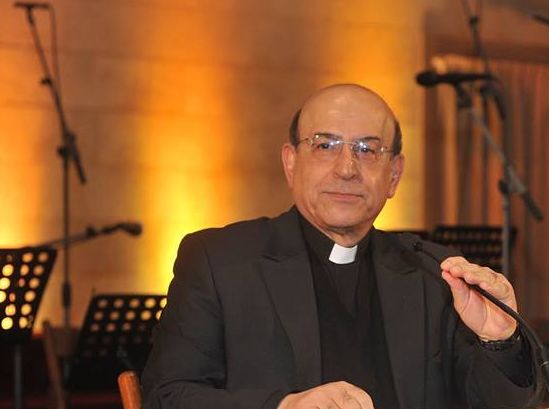São Paulo – The Arab Brazilian Chamber of Commerce will host a lecture by the dean of Lebanon’s Holy Spirit University of Kaslik (USEK), professor and priest Georges Hobeika (pictured above), and the launch of the Project for the Memory of Syrian-Lebanese Immigration to Brazil, May 3 at 5:30 pm.
The project is intended to collect and digitize documentation on Syrian-Lebanese migration, including photographs, letters, certificates, newspapers and magazines, in an initiative of the USEK’s Latin American Studies and Cultures Center (LASCC). It will be carried out in partnership with the Arab Chamber.
“Besides being USEK’s dean, professor Hobeika lent decisive support to Roberto Khatlab’s project to digitize documents on Syrian-Lebanese immigration to Brazil, with full support from the Arab Chamber,” says Arab Chamber Marketing vice president Riad Younes.
Roberto Khatlab is the director of the LASCC and will join Hobeika in a trip to Brazil. Riad Younes travelled to Lebanon last February to sign the Arab Chamber-USEK agreement establishing the collaboration.
“The event on May 3 will kick off the Arab Chamber-USEK collaboration, as weel as strengthen the Chamber’s academic and cultural ties with one of Lebanon’s most traditional universities,” Younes told ANBA.
The lecture and launch event will be attended by the Arab Chamber board and by Syrian and Lebanese community leaders.
Hobeika will provide a project overview and discuss possibilities for USEK to cooperate with Brazilian organizations. He will outline the project’s goals, methods and perspectives to engage attendees in its successful development.
The Arab Chamber-USEK agreement provides that the latter will supply equipment and training, while the former will supply a team to collect material. The archives will be kept at USEK, with access granted to Arab Chamber staff and Brazilian researchers.
Younes explains that the Arab Chamber’s goals transcend trade and deal-making involving Brazil and Arab countries. “Our board believes that the building of closer Brazil-Arab cultural and academic ties brings our peoples together and facilitates the exchange of people, ideas and experiences, the crucial foundation that underlies any commercial, relationship,” says Younes.
The Marketing VP says the immigration memory project will create a solid database. “It will surely make for an improved cultural connection between Brazil and the Arab world, and therefore to ties and partnerships at all levels, including the commercial one,” he says.
Translated by Gabriel Pomerancblum




